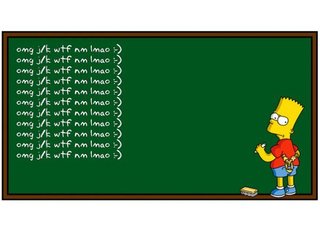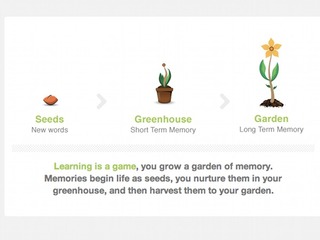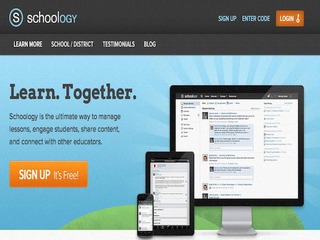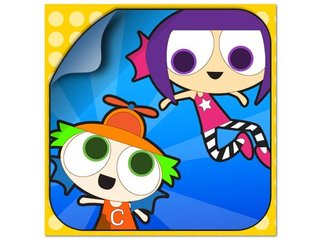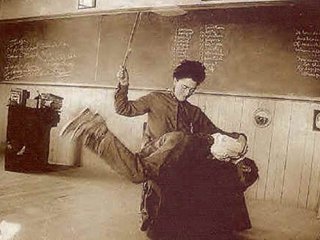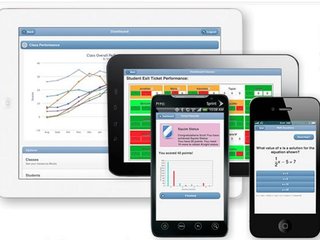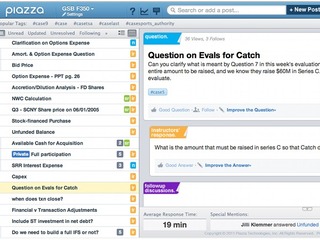Global AI in healthcare market expected to rise to $164B by 2030
The market size for 2023 was $10.31 billion
Read more...
Updated to reflect comment from Duck Duck Moose
I remember when I was a kid being told that if I sat too close to a television set it would do damage to my eyes. (I’ve been wearing glasses since I was around eight years old, so maybe I should have listened.) So what about kids growing up now? They are going be spending practically their entire lives in front of a screen of some sort. I guess the best you can do is try to make the things they wind up watching somewhat educational.
Educational app creator Duck Duck Moose has raised $7 million in Series A funding, the company announced Wednesday.
The round was led by Sequoia Capital and Lightspeed Venture Partners, with participation from Stanford University. Duck Duck Moose will use the newly raised money to grow the number of apps, expand its marketing team, and add new illustrators, animators and engineers.
Founded in 2008 by Nicci Gabriel, Caroline Hu Flexer and Michael Flexer, San Francisco-based Duck Duck Moose also announced that it had hit a new milestone with its 14 apps having been downloaded 2.4 million times.
In an interview with VatorNews, Caroline Hu Flexer said that the inspiration for the company came from her oldest daughter.
“When my oldest daughter was two years old, I saw how interested she was in my iPhone,” Flexer said. “I could see the potential for learning, but there really wasn’t any good educational content out there.”
Since then, she has seen the space expand, so that now all of the major media companies, such as Nickelodeon and Disney, are creating their own educational apps, but they are still not doing what Duck Duck Moose does.
Other apps, she said, are either games or they are something education, like a book. "Duck Duck Moose bridges that gap," by marrying education and interactivity.
This is the first money that Duck Duck Moose has taken, as the company has been profitable from the beginning, since every app is paid, and its first release, Wheels on the Bus was a success.
So why take the money now? To speed up the process, Flexer said.
"There's a limit to what four people can do," referring to the number of people who worked on the first batch of apps.
In addition, the company has never done any paid marketing, and sees a real opportunity to grow in that arena.
Duck Duck Moose has created 14 apps so far, all of which feature only original content, including characters and stories. Even the music is original, producers by two of the co-founders. The apps that the company sells are Wheels on the Bus, Old MacDonald, Itsy Bitsy Spider, Fish School, Baa Baa Black Sheep, Park Math, Word Wagon, Musical Me!, Puzzle Pop, Peek-a-Zoo, Draw and Tell, Trucks, Princess Fairy Tale Maker, and Monsters vs. Superheroes Comic Book Make.
There are three categories for these apps, Flexer said: pre-school levels apps, which are musically based; early learning apps; and open-ended creativity apps for older children. The apps currently are made for children aged one to two, and up to a first or second grade level. With the expanded portfolia of apps, Duck Duck Moose will make apps that go up to a fifth grade level.
These apps have won numerous awards, including the KAPi Award for Best Children’s App at the 2010 International Consumer Electronics Show for Wheels on the Bus, and the 2010 Best Kids’ iPhone/iPod App of the Year Award from iLounge for Park Math. Duck Duck Moose has also win thirteen Children’s Technology Review Editor’s Choice Award for Excellence in Design.
This month, Duck Duck Moose earned Parents' Choice Awards for its three most recent titles, Trucks HD, Princess Fairy Tale Maker, and Superhero Comic Book Maker, meaning that every one of its 14 apps has won the award. Duck Duck Moose is the only company to win that many of Parents' Choice Awards in the mobile category.
"Today's mobile devices offer an entirely new way for children to engage with music, math, language and art, but few apps succeed in marrying educational content with engaging interactive experiences," Caroline Hu Flexer, co-founder of Duck Duck Moose said in a statement.
"At Duck Duck Moose, we bring together beautiful visual design, playful characters and stories, intuitive touch interactions, and educational content to transform mobile devices into a platform for children to imagine and learn."
In a blog post Wednesday, Justin Caldbeck, Managing Director at Lightspeed Venture Partners, wrote that the reason he is interested in investing in the interactive educational apps market comes from his own experience as a parent.
“Like many parents, I rely on a set of tricks skills to get my 3 year old daughter to do the things I know are good for her like eating well, brushing her teeth, etc. – things like turning these activities into a game. That idea is the basis of the interactive educational apps market; take things that are educational and make them fun for kids to do so they want to go back and play over and over again while learning valuable skills in the process,” he wrote.
The things that he says excite him the most about the market are the availability of smartphones and tablets that already exist in the home; the amount of money spent on “edu-tainment” toys, which amounts to over $1 billion of the $2 to $12 billion spent every year; and that smartphones and tablets have become a passive babysitter for parents on planes, in cars, in stores etc..” Half of the children under the age of two spend around two hours a day in front of a screen.
“Which is why I am thrilled to announce that we’ve invested alongside Sequoia Capital in the largest independent developer of children’s applications, Duck Duck Moose today,” Caldbeck said.
All of Duck Duck Moose's apps are currently available on iOS, and two of the apps, Itsy Bitsy Spider and Wheels on the Bus, are available on Android.
Duck Duck Moose is just the latest education startup to receive funding this year.
In April, StraighterLine raised $10 million, 2tor raised $26 million, while Schoology and Piazza raised $6 million each. Memrise raised $1.05 million in February, while Schoolfeed received $1.75 million the same month.
Most recently, online-education startup Desire2Learn raised a $80 million this month.
For a great series on the changing education landscape, check out Faith Merino's Resetting Education series.
(Image source: https://lsvp.com)
The market size for 2023 was $10.31 billion
Read more...At Culture, Religion & Tech, take II in Miami on October 29, 2024
Read more...The company will use the funding to broaden the scope of its AI, including new administrative tasks
Read more...
